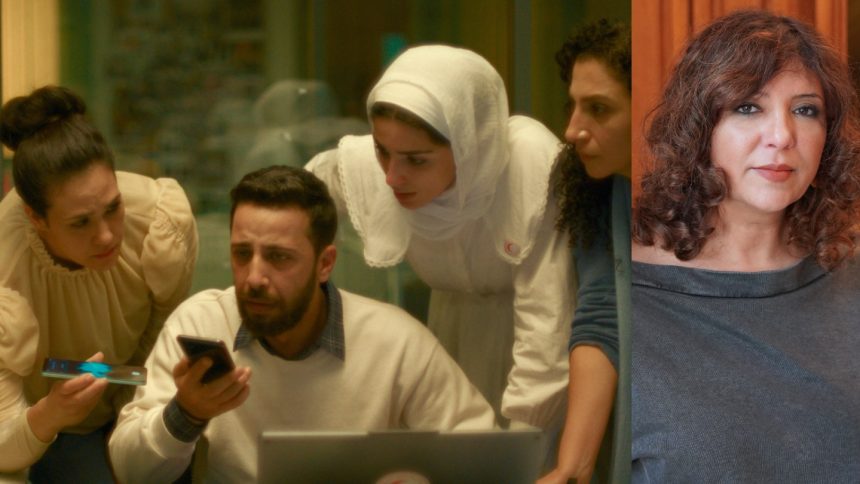Filmmakers Behind Gaza Drama ‘The Voice of Hind Rajab’ Make Plea for Peace in Venice: “Enough of the Mass Killing, Starvation, Dehumanization”
The filmmakers behind the Gaza-set drama The Voice of Hind Rajab, one of the most anticipated movies at this year’s Venice Film Festival, used the opportunity of the project’s first major press conference to make a powerful plea for peace. After the film’s director, Kaouther Ben Hania, was greeted by a lengthy standing ovation, her star, Palestinian-Canadian actress Saja Kilani, read a prepared statement on behalf of her collaborators.
“In the name of the entire team, we ask, ‘Isn’t it enough?’ Enough of the mass killing, starvation, dehumanization, destruction and the ongoing occupation,” Hanja said. “The Voice of Hind Rajab does not need our defense. This film is not an opinion or a fantasy. It is anchored in truth. Hind’s story carries the weight of an entire people. Hind’s voice is one amongst tens of thousands of children that were killed in Gaza in the last two years alone.”
She continued: “The real question is, how have we let a child beg for life? No one can live in peace, while even one child is forced to plea for survival. Let Hind’s voice echo around the world. Let it remind you of the silence that has been built around Gaza.”
The Voice of Hind Rajab is based on the final, real-life calls of six-year-old Hind Rajab, who was trapped in a car in Gaza on January 29, 2024, after Israeli tank fire killed her relatives. The Palestine Red Crescent Society stayed on the line with the child for more than an hour as she pleaded for rescue. An ambulance sent to reach her was itself destroyed, killing the two medics on board. Hind’s voice — fragments of which spread online and were later verified and analyzed by outlets including The Washington Post, SkyNews and Forensic Architecture — became one of the most haunting and emblematic testaments of the war in Gaza: a desperate plea heard around the world — met with silence.
You Might Also Like
“For me, it was a strong desire and a feeling of anger and helplessness that gave birth to this movie,” Ben Hania, a two-time Oscar nominee, said of her motivations. “But I was surrounded by wonderful people, with all the support of Hind’s mother and family and all the Red Cross workers, who are the real heroes of this story.”
Denied access to Gaza but determined to respond, Ben Hania contacted the Red Crescent and Hind’s loved ones, eventually obtaining the full 70-minute recording. Out of that raw material, she constructed a hybrid narrative, centering on the voices of the Red Crescent workers who tried, against impossible odds, to save the child. Palestinian actors play the medics, but the voice of Hind we hear is her own, from the original recording of that day.
Last week, just as the Venice festival was getting underway, industry heavyweights including Brad Pitt, Joaquin Phoenix, Alfonso Cuaron and Jonathan Glazer, boarded The Voice of Hind Rajab as executive producers, boosting its profile ahead of its world premiere.
Ben Hania said the backing of such global film figures was something she “never imagined was possible,” but that she’s “very grateful for their support.”
“The fact that all those names joined the movie means something,” she added. “We’ve seen the narrative change all around the world — that those dying in Gaza are collateral damage in the media. That’s why cinema, art, and every kind of expression are very important to give those people a voice and a face.”
Ben Hania has been inventively blurring the boundaries between fiction and nonfiction for more than a decade, crafting work that moves between dramatization and documentary while remaining anchored in lived experience. Her feature debut, The Challat of Tunis (2014), used documentary techniques to probe a local urban legend. Beauty and the Dogs (2017) dramatized the aftermath of a sexual assault in Tunis with unsettling precision.
Recent work has catapulted the director to global recognition. In 2020, she became the first Tunisian filmmaker nominated for an Academy Award with The Man Who Sold His Skin, a satirical drama about a Syrian refugee whose body becomes a commodity. Three years later, her hybrid doc Four Daughters — part testimony, part re-enactment — bowed at Cannes, went on to win the prize for best documentary, and was nominated for an Oscar.
The Voice of Hind Rajab has already been submitted by Tunisia for the best international film category at the upcoming 98th Academy Awards.
The film’s all-Palestinian cast — including Motaz Malhees, Clara Khoury and Amer Hlehel — spoke in Venice of the emotionally wrenching mood throughout production.
“Tears were dropped always, every day, every moment,” said Hlehel, who plays a medic. Co-star Malhees, who was born in the West Bank, said the moment he heard the recordings of Hind’s voice during shooting, he felt as if he were “in reality” rather than on a film set.
“It took me back to the time I was begging as a kid for safety,” he added. “There were two times I couldn’t keep filming. I had a panic attack. It was hard, but everyone was there to support me.” He concluded: “It was a responsibility for me. I felt that we should do this — because if we don’t, who will?”
The winners of the 82nd Venice Film Festival will be unveiled at a ceremony on Sept 6.


